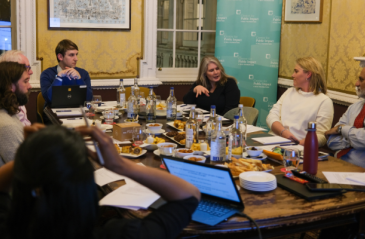
New initiative supports cities to lead global response to climate change


In this @ReutersUK article, @chandrima_lp discusses infrastructure, implementation, and why the most helpful conversations are had closer to the ground.
Share article“The most helpful conversations are had closer to the ground” shares @chandrima_lp in this @ReutersUK article about honest dialogue & bold solutions around #climatechange
Share articleAs the UK experiences extreme heatwaves, droughts, and sky-high energy costs, will the government recognise the importance of public engagement? Learn from @chandrima_lp in this @ReutersUK article
Share articleWe put our vision for government into practice through learning partner projects that align with our values and help reimagine government so that it works for everyone.
Originally published by Reuters.
Chandrima Padmanabhan, Programme Manager at the Centre for Public Impact, spoke to Reuters about engaging citizens so governments can implement better climate change initiatives.
[...]
Another elephant in the room is infrastructure: it’s not possible to get people onto buses if the buses aren’t there, or onto bikes if there aren’t safe places to cycle. Chandrima Padmanabhan, programme manager for Europe at the Centre for Public Impact, has found that typically governments try to identify incentives or disincentives to people taking up proposed interventions (like cycling), as opposed to their capacity to respond, such as whether they have been taught to ride a bike.
[...]
Implementation is the biggest gap, says Padmanabhan. While national dialogues give legitimacy to the importance of issues such as climate change, governments also need to signal that they see climate as an emergency that warrants urgent action, she adds.
Then there are structural issues to tackle to give cities the resources to address climate change and engage their citizens. From Padmanabhan’s experience, “the most helpful conversations are had closer to the ground”.
[...]
As the UK experiences extreme heatwaves, droughts, and sky-high energy costs, will the government recognise the importance of public engagement?




